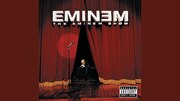
NEW YORK (MP3-News) - Remember Napster, well neither do we, but in the interest of following the story through, CEO Konrad Hilbers has resigned from Napster and they may be facing bankruptcy.
Blah, blah, blah.
A death rattle is now playing on Napster, the long embattled file-trading service. On a tumultuous Tuesday that encapsulated its stormy history, CEO Konrad Hilbers announced his resignation. Shortly after, Napster's approximately 70 remaining employees were offered two unappealing options: Quit now and receive severance pay, or take one week of unpaid leave, hoping somebody will revive the once powerful file-trading company, sources close to the situation said.
"It seems pretty clear that there is not much benefit to sticking around for a week and only possibly risks the severance," said one employee, who asked to remain anonymous. "Most everybody is taking off."
And so closes one of the most significant chapters in Internet history. Napster, the brainchild of two college students who dreamed up a way to exchange music files over the Internet, became so big and popular that the mightiest forces of the entertainment industry -- threatened by a new-age distribution system -- had thrown all its weight toward shutting it down since December 1999.
The final act began with Tuesday's abrupt resignation of Hilbers, who replaced embattled CEO Hank Barry last year.
Hilbers and the board of directors had been locked in a battle over the direction of the company. Hilbers supported a sale to Bertelsmann AG -- the German media conglomerate where he formerly worked -- that had shelled out over $85 million in loans to Napster.
The sale, employees were told, would have insured that everyone kept their jobs. However, the board of directors nixed the sale. "The entire management team has worked hard to find funding for Napster," Hilbers wrote Tuesday in an e-mail to the company. "We have put together what I consider to be a valid and beneficial deal for Napster over the last weeks.... I am convinced that not pursuing this offer is a mistake, and it will lead the company to a place where I don't want to lead it."
 The resignation came a month after Bertelsmann executive Thomas Middlehoff said his company planned on purchasing Napster outright. However, John Fanning, uncle of Napster creator Shawn Fanning, sought to oust Barry and investment partner John Hummer from the board of directors in March.
The resignation came a month after Bertelsmann executive Thomas Middlehoff said his company planned on purchasing Napster outright. However, John Fanning, uncle of Napster creator Shawn Fanning, sought to oust Barry and investment partner John Hummer from the board of directors in March.
Although a Delaware court threw out Fanning's case, the power struggle gave Bertelsmann executives pause. The company had planned to offer a new, legal version of its system this year. After Hilbers resigned and employees had been given their options, the company issued an ominous statement.
"We deeply regret that we have not yet been able to find a funding solution that would allow Napster to launch a service to benefit artists and consumers alike," the statement said. "We will be looking at additional steps in the coming week to further reduce expenses."
The company has already had two rounds of layoffs, most recently cutting nearly 30 percent of its workforce.
Napster gained prominence in December 1999 when the Recording Industry Association of America sued the company, claiming the software application violated copyright laws by allowing any users around the world to share digital music files.
The ensuing court battle heaped attention on Internet entertainment, sparking hundreds of millions of dollars in investment capital that fueled the digital music revolution. Other similar services began popping up -- Scour, Gnutella, Kazaa and Morpheus -- but none could match Napster's incredible reach of 80 million users.
Ninth District Court Judge Marilyn Hall Patel eventually issued the first of two injunctions that would force the company to shut its network down last July. In the following months, other file trading applications surpassed Napster as the largest network.
 Still, things were beginning to look up for the company that Hilbers has described as a "cat with nine lives." Under Hilbers, Napster's third CEO, the company was making progress on settlement talks with the music industry, and it even launched the public beta of its new, secure system.
Still, things were beginning to look up for the company that Hilbers has described as a "cat with nine lives." Under Hilbers, Napster's third CEO, the company was making progress on settlement talks with the music industry, and it even launched the public beta of its new, secure system.
Just as it appeared Napster might finally turn its name recognition and user base into cash, the internal strife broke out between Hilbers and the board of directors.















 NEW YORK (MP3-News) - Remember Napster, well neither do we, but in the interest of following the story through, CEO Konrad Hilbers has resigned from Napster and they may be facing bankruptcy.
NEW YORK (MP3-News) - Remember Napster, well neither do we, but in the interest of following the story through, CEO Konrad Hilbers has resigned from Napster and they may be facing bankruptcy.  The resignation came a month after Bertelsmann executive
The resignation came a month after Bertelsmann executive  Still, things were beginning to look up for the company that Hilbers has described as a "cat with nine lives." Under Hilbers, Napster's third CEO, the company was making progress on settlement talks with the music industry, and it even launched the public beta of its new, secure system.
Still, things were beginning to look up for the company that Hilbers has described as a "cat with nine lives." Under Hilbers, Napster's third CEO, the company was making progress on settlement talks with the music industry, and it even launched the public beta of its new, secure system. 